January 13, 2014 •
Virginia Governor Establishes Gift Rules for Executive Branch Employees
Terry McAuliffe was sworn in as Governor of Virginia this weekend, and already he is making ethics a priority for his administration. Executive Order 2 establishes a gift limit for all executive branch officials and employees, prohibiting acceptance of gifts […]
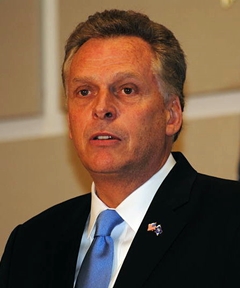
Terry McAuliffe was sworn in as Governor of Virginia this weekend, and already he is making ethics a priority for his administration. Executive Order 2 establishes a gift limit for all executive branch officials and employees, prohibiting acceptance of gifts exceeding $100 per calendar year. Gifts from lobbyists and principals are restricted to $25.
The order does allow for some exceptions, such as excluding items of $25 or less from the definition of gift, and allowing for receipt of certain items while engaging in an activity serving a legitimate public purpose, such as food and refreshments served at certain events.
These restrictions became effective upon his signature on January 11, 2014.
The full text of Executive Order 2 can be viewed here.
Photo of Gov. Terry McAuliffe by Edward Kimmel on Wikimedia Commons.
January 7, 2014 •
New Jersey Gubernatorial Inauguration Set for January 21
The inauguration for New Jersey Governor Chris Christie will be held Tuesday, January 21, 2014. The day will begin with a morning prayer service in Newark followed by a swearing-in ceremony and inaugural address in Trenton. Evening festivities include an […]
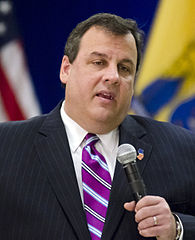 The inauguration for New Jersey Governor Chris Christie will be held Tuesday, January 21, 2014. The day will begin with a morning prayer service in Newark followed by a swearing-in ceremony and inaugural address in Trenton. Evening festivities include an inaugural celebration at the Great Hall on Historic Ellis Island.
The inauguration for New Jersey Governor Chris Christie will be held Tuesday, January 21, 2014. The day will begin with a morning prayer service in Newark followed by a swearing-in ceremony and inaugural address in Trenton. Evening festivities include an inaugural celebration at the Great Hall on Historic Ellis Island.
The Governor selected three charities to benefit from the proceeds raised during his second inauguration. Contribution limits do apply for inaugural fundraising events. No person, candidate, candidate committee, joint candidates committee, political committee or continuing political committee may contribute more than $500 in the aggregate to any gubernatorial inaugural fundraising event or events, notwithstanding any contribution made to any candidate for the gubernatorial election. Any contribution given in excess of the $500 aggregate limit will be returned to the contributor.
Similarly, a corporation, association, or labor organization may also contribute to a gubernatorial fundraising event, provided its contribution – when added to that of any related or affiliated corporation, association, or labor organization – does not exceed $500. Partnerships, LLPs, and LLCs may not make contributions as an entity; any contribution made by check or other written instrument drawn on such an account will be considered a contribution from the individual who signed the check or written instrument.
Tickets to gubernatorial fundraising events may be given to legislators and public officials provided there is no intent to influence the official in any matter related to his or her official duties. Lobbyists may provide gifts of entertainment, food, beverages, or tickets to events as long as the aggregate value of all gifts does not exceed $250 per calendar year.
Photo of Governor Chris Christie courtesy of the Bob Jagendorf on Wikimedia Commons.
January 7, 2014 •
Virginia Ethics Reform on the Horizon
The Virginia General Assembly may be taking steps toward substantive ethics reform in its upcoming session. Ethics bills have already been prefiled in anticipation of the session’s start on January 8, most notably Senate Bill 274, limiting gifts to officers […]
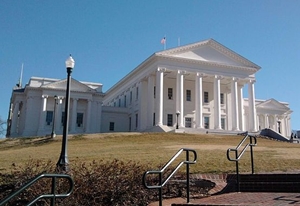 The Virginia General Assembly may be taking steps toward substantive ethics reform in its upcoming session. Ethics bills have already been prefiled in anticipation of the session’s start on January 8, most notably Senate Bill 274, limiting gifts to officers and employees of the state and local governments to $100 per calendar year, and requiring disclosure of gifts to immediate family members.
The Virginia General Assembly may be taking steps toward substantive ethics reform in its upcoming session. Ethics bills have already been prefiled in anticipation of the session’s start on January 8, most notably Senate Bill 274, limiting gifts to officers and employees of the state and local governments to $100 per calendar year, and requiring disclosure of gifts to immediate family members.
Virginia does not currently limit the amount of gifts officials and employees may receive, and many called for reform after Gov. Bob McDonnell became embroiled in scandal after accepting thousands of dollars worth of gifts from Star Scientific CEO Jonnie Williams. Williams had also made gifts to McDonnell’s wife and daughters, prompting the addition of disclosure requirements to immediate family members.
Photo of the Virginia Capitol courtesy of Varmin on Wikimedia Commons.
January 6, 2014 •
Virginia Gubernatorial Inauguration January 11
The inauguration for Virginia Governor-Elect Terry McAuliffe will be held Saturday, January 11, 2014 in Capitol Square in Richmond Virginia. The day will begin with a prayer breakfast, followed by the inauguration ceremony, parade, executive mansion open house, and the […]
 The inauguration for Virginia Governor-Elect Terry McAuliffe will be held Saturday, January 11, 2014 in Capitol Square in Richmond Virginia. The day will begin with a prayer breakfast, followed by the inauguration ceremony, parade, executive mansion open house, and the Richmond Inaugural Ball. More information is available at http://www.inauguration2014.com/.
The inauguration for Virginia Governor-Elect Terry McAuliffe will be held Saturday, January 11, 2014 in Capitol Square in Richmond Virginia. The day will begin with a prayer breakfast, followed by the inauguration ceremony, parade, executive mansion open house, and the Richmond Inaugural Ball. More information is available at http://www.inauguration2014.com/.
Virginia does not place any limits on the source or amount of political contributions or gifts, including to inaugural committees. Contributions to inaugural committees are not required to be reported on lobbying reports.
Photo of Virginia Governor-Elect Terry McAuliffe courtesy of Edward Kimmel on Wikimedia Commons.
January 2, 2014 •
WA Legislative Ethics Board Dismisses Complaint, Looks to Legislature for Guidance on Free Meals to Lawmakers
The Legislative Ethics Board in Washington dismissed a complaint related to Washington state lawmakers accepting free meals from lobbyists. Washington law prohibits public officials from accepting free meals on more than “infrequent occasions.” However, there is no enforceable standard for […]
 The Legislative Ethics Board in Washington dismissed a complaint related to Washington state lawmakers accepting free meals from lobbyists. Washington law prohibits public officials from accepting free meals on more than “infrequent occasions.” However, there is no enforceable standard for “infrequent occasions.”
The Legislative Ethics Board in Washington dismissed a complaint related to Washington state lawmakers accepting free meals from lobbyists. Washington law prohibits public officials from accepting free meals on more than “infrequent occasions.” However, there is no enforceable standard for “infrequent occasions.”
The complaint was prompted by a reported $65,000 being spent on free meals by the state’s most active lobbyists in the first four months of 2013.
The Ethics Board is turning to the Legislature for an enforceable standard for the ethics law. If the Legislature fails to do so in the upcoming session beginning in January, the board plans to establish its own rules.
The board also noted in its decision the lack of an enforceable standard affects the consistency of lobbyist reports in terms of what is being reported.
Photo of the Washington State Capitol by Nikopoley on Wikimedia Commons.
January 2, 2014 •
Thursday News Roundup
Lobbying “Lobbying Follows Political Activity Into Dark Money” by Kent Cooper in Roll Call’s Political MoneyLine. “K Street Review: Some Trends In the World of Lobbying For 2013” by Tess Venden Dolder in Streetwise’s InTheCapital. “Influential Boeing lobbyist Coffey dies […]
 Lobbying
Lobbying
“Lobbying Follows Political Activity Into Dark Money” by Kent Cooper in Roll Call’s Political MoneyLine.
“K Street Review: Some Trends In the World of Lobbying For 2013” by Tess Venden Dolder in Streetwise’s InTheCapital.
“Influential Boeing lobbyist Coffey dies at 86” by The Associated Press in the Seattle Post-Intelligencer.
Campaign Finance
California: “Former California lawmaker pays state fine, closes committee” in The Sacramento Bee.
Delaware: “Investigation into campaign finance abuse in Delaware may not lead to new laws” by Sean Carlson in WDDE News.
Maine: “Cutler says he wonʹt take PAC money for 2014 race, will run ʹunboughtʹ” by Christopher Cousins in the Bangor Daily News.
Massachusetts: “Coakley moves to fix lingering campaign finance problems” by Frank Phillips in the Boston Globe.
Michigan: “Critics knock Michigan Gov. Rick Snyder for reversal on ʹissue adʹ donor transparency” by Jonathan Oosting in Michigan Live.
Missouri: “Well known political contributor makes large year-end donation” by The Associated Press in KRCG News.
New York: “NYC commissioner of investigation to head Campaign Finance Board” by The Associated Press in The Republic.
North Carolina: “New N.C. campaign finance laws raise limits, soften disclosure” in the News & Record.
Wisconsin: “Campaign finance bill stalls in Senate” by Bob Hague in the Wisconsin Radio Network.
Ethics
Arkansas: “Arkansas Ethics Commission proposes fines, letters of warning and caution to ex-lawmaker” by The Associated Press in The Tribune.
“Arkansas governor asks lieutenant governor to quit over ethics case” by Chuck Bartels (Associated Press) in the Deseret News.
“Lieutenant governor refuses call to resign over ethics flap” in The Columbus Dispatch.
Georgia: “Georgia ethics commission corrects mistake” by Mark Rice in the Ledger-Enquirer.
South Carolina: “State, legislative ethics panels owed money; House committee may pursue fines in court” by Seanna Adcox (Associated Press) in The Republic.
West Virginia: “Beckley mayor leaving office after ethics probe” by Jennifer Smith in the West Virginia Metro News.
In the Legislatures
“The Top 10 Legislative Issues to Watch in 2014” by Chris Kardish, J.B. Wogan, Mike Maciag, Liz Farmer, and Ryan Holeywell in Governing.
“12 State Legislators to Watch in 2014” by Louis Jacobson in Governing.
Elections
“GOP Crafts New Rules To Shorten 2016 Primary Season” by S.V. Dáte on NPR.
Alaska: “Handful of new Alaska laws take effect in new year” by Becky Bohrer in the Anchorage Daily News.
Massachusetts: “Dates set for 2 Mass. House elections” by The Associated Press in The Boston Herald.
Government Tech and Social Media
“Congress wishes Twitter a happy New Year” by Tal Kopan in Politico.
“The Top 5 Government Tech Stories of 2013” by Joseph Marks in NextGov.
“Coming in 2014: Facebook Across Government” by Joseph Marks in NextGov.
January 2, 2014 •
Georgia Lobbyist Gift Rules Set to Take Effect
Effective January 1, 2014, new rules generally ban lobbyists from providing public officials with gifts valued at more than $75 or any tickets to games, concerts, and other recreational events. The ethics overhaul in House Bill 142 provides the state’s […]
 Effective January 1, 2014, new rules generally ban lobbyists from providing public officials with gifts valued at more than $75 or any tickets to games, concerts, and other recreational events. The ethics overhaul in House Bill 142 provides the state’s first legislative limitation on gifts to public officials.
Effective January 1, 2014, new rules generally ban lobbyists from providing public officials with gifts valued at more than $75 or any tickets to games, concerts, and other recreational events. The ethics overhaul in House Bill 142 provides the state’s first legislative limitation on gifts to public officials.
Exceptions to the $75 limit include committee dinners, dinners for caucuses, and certain lobbyist-funded travel. The $75 cap is per occurrence and per lobbyist.
Although the bill was signed in May, 2013, lobbyists were permitted to provide unlimited gifts until the January 1 effective date.
December 20, 2013 •
Philadelphia Board of Ethics Struggles to Enact Gift Regulations
The Philadelphia Board of Ethics staff has released a revised gift proposal following claims its initial proposed limits were too lax. The new suggested limits are a ban on gifts of more than $100, with a limit of $25 on […]
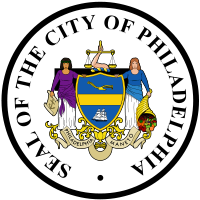 The Philadelphia Board of Ethics staff has released a revised gift proposal following claims its initial proposed limits were too lax. The new suggested limits are a ban on gifts of more than $100, with a limit of $25 on cash gifts, per calendar year from any source not a family member of the recipient. The initial limits proposed were $200 per year, with a cap of $50 for cash gifts, resulting in outcry from watchdogs.
The Philadelphia Board of Ethics staff has released a revised gift proposal following claims its initial proposed limits were too lax. The new suggested limits are a ban on gifts of more than $100, with a limit of $25 on cash gifts, per calendar year from any source not a family member of the recipient. The initial limits proposed were $200 per year, with a cap of $50 for cash gifts, resulting in outcry from watchdogs.
The new proposed limits were greeted with skepticism, however, because the provision allowing for cash gifts remained. Executive Director Shane Creamer insisted the Board cannot ban cash gifts altogether because the city code permits cash gifts, prompting the Board to decide on formally requesting the City Council to consider amending the code.
The suggested limits could drop yet again before the Board votes, as a number of Board members suggested a $50 annual limit was preferable. The Board could potentially vote on the rules at its January meeting.
December 9, 2013 •
Los Angeles, California Keeps Gift Limit at $100
City Council President Herb Wesson abandoned a plan to increase the value of gifts lawmakers can accept from companies seeking city contracts, opting to leave the amount unchanged at $100. In October, City Council instructed the city’s lawyers to draft […]
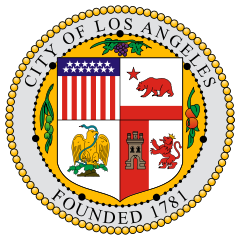 City Council President Herb Wesson abandoned a plan to increase the value of gifts lawmakers can accept from companies seeking city contracts, opting to leave the amount unchanged at $100.
City Council President Herb Wesson abandoned a plan to increase the value of gifts lawmakers can accept from companies seeking city contracts, opting to leave the amount unchanged at $100.
In October, City Council instructed the city’s lawyers to draft an ordinance increasing the gift limit to $150, despite a recommendation by the Ethics Commission to prohibit most gifts of any value.
The city’s ethics law will continue to bar lobbyists from giving gifts to elected officials and other high-level decision makers.
Those who do not have business before the city will continue to be permitted to give gifts to elected officials within the state limit of $440 per year. –
November 18, 2013 •
Trenton Ethics Board Establishes Code of Ethics
Trenton’s recently established ethics board passed the city’s first code of ethics last week. The long-awaited code outlines behavioral guidelines for elected officials, city employees, and representatives serving on city boards. Included are provisions regarding conflicts of interest, receipt of […]
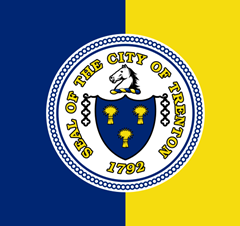 Trenton’s recently established ethics board passed the city’s first code of ethics last week. The long-awaited code outlines behavioral guidelines for elected officials, city employees, and representatives serving on city boards. Included are provisions regarding conflicts of interest, receipt of gifts, and financial disclosure.
Trenton’s recently established ethics board passed the city’s first code of ethics last week. The long-awaited code outlines behavioral guidelines for elected officials, city employees, and representatives serving on city boards. Included are provisions regarding conflicts of interest, receipt of gifts, and financial disclosure.
Additionally, the code permits the ethics board to investigate possible ethics violations.
The code will go to the state Department of Community Affairs before it is enacted and added to the code book.
November 13, 2013 •
Officialʹs Receipt of Complimentary Tickets Reviewed by Hawaii State Ethics Commission
The Hawaii State Ethics Commission issued four Informal Advisory Opinions pertaining to a state official’s receipt of complimentary event tickets. A state agency may have a legitimate state interest in giving an agency board member a ticket to an agency […]
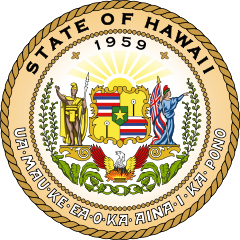 The Hawaii State Ethics Commission issued four Informal Advisory Opinions pertaining to a state official’s receipt of complimentary event tickets. A state agency may have a legitimate state interest in giving an agency board member a ticket to an agency event. In that scenario the tickets are not considered “gifts” under Hawaii gift law. Rather, they are “state assets” and distribution must be evaluated in accordance with the fair treatment law under the State Ethics Code.
The Hawaii State Ethics Commission issued four Informal Advisory Opinions pertaining to a state official’s receipt of complimentary event tickets. A state agency may have a legitimate state interest in giving an agency board member a ticket to an agency event. In that scenario the tickets are not considered “gifts” under Hawaii gift law. Rather, they are “state assets” and distribution must be evaluated in accordance with the fair treatment law under the State Ethics Code.
Agency board officials may accept two complimentary tickets per agency event – one for the official and the other for the official’s spouse or significant other. An official’s use of complimentary tickets for additional personal guests constitutes unfair compensation and is, therefore, prohibited. Moreover, transferring complimentary tickets to family members to attend events in the official’s place is also a likely violation of the fair treatment law.
November 4, 2013 •
Monday News Roundup
Lobbying “Cooley-Dow Lohnes merger leaves lobbyists out” by Catherine Ho in The Washington Post. “Hotel trade group shakes up lobby team” by Kevin Bogardus in The Hill. Alabama: “Bill aims to discourage lawmakers from departing for lobbying positions” by Brian […]
 Lobbying
Lobbying
“Cooley-Dow Lohnes merger leaves lobbyists out” by Catherine Ho in The Washington Post.
“Hotel trade group shakes up lobby team” by Kevin Bogardus in The Hill.
Alabama: “Bill aims to discourage lawmakers from departing for lobbying positions” by Brian Lyman in the Montgomery Advertiser.
Florida: “As lawmakers consider audits, documents show how lawmakers-turned-lobbyists help tip the scales for large lobbying firms” by Matt Dixon in The Florida Time-Union.
Texas: “Candidates to lead Texas accept meals, gifts, more from lobbyists” by Christy Hoppe in The Dallas Morning News.
Campaign Finance
California: “Disgorgement Fight Could Shape Dark Money’s Future in CA” by Ben Adler in Capital Public Radio.
California: “California probe of campaign donations sheds light on ‘dark money’” by Chris Megerian and Anthony York in the Los Angeles Times.
Washington: “Washington elections draw big out-of-state donations” by Brian M. Rosenthal in The Spokesman-Review.
Ethics
California: “Gifts and elected officials” by Bennett Kessler in Sierra Wave.
New York: “JCOPE leader ballot splits commission 9-5” by James M. Odato in the Times Union.
South Carolina: “State House for Sale: Big businesses pay off in jobs, political contributions” by Jeff Wilkinson in The State.
Elections
“Federal Election Commission Lists 2014 Election Dates” by Kent Cooper in Roll Call’s Political MoneyLine.
Iowa: “Koch Group Has Ambitions in Small Races” by John Eligon in The New York Times.
New York: “N.Y. to run voter hotline on Election Day” by The Associated Press in the Times Union.
October 28, 2013 •
Los Angeles, California Council Looks to Increase Gift Limits
Ethic Commission recommends the opposite
 City Council instructed the city’s lawyers to draft an ordinance increasing the gift limit to $150 for gifts provided by bidders, contractors, and other restricted sources. Currently, people doing business with the city can provide gifts to city officials valued at $100 or less per calendar year.
City Council instructed the city’s lawyers to draft an ordinance increasing the gift limit to $150 for gifts provided by bidders, contractors, and other restricted sources. Currently, people doing business with the city can provide gifts to city officials valued at $100 or less per calendar year.
Recently, the Los Angeles Ethics Commission recommended curtailing gifts to city officials, hoping to boost public confidence in government. The commission’s recommendation would have extended the current ban on gifts from lobbyists to all people with a financial stake in city decisions.
Photo of the Los Angeles City Hall by Brion Vibber on Wikipedia.
October 23, 2013 •
Ask the Experts – Lobbyists, Legislators, and Gift Laws
Here is your chance to “Ask the Experts” at State and Federal Communications, Inc.
 Q. I am a registered lobbyist with a personal relationship with a state legislator. I would like to give her a gift for a special occasion. Is this permissible?
Q. I am a registered lobbyist with a personal relationship with a state legislator. I would like to give her a gift for a special occasion. Is this permissible?
A. As a registered lobbyist, you should always be aware of the restrictions placed on you for providing things of value to a state official. A number of jurisdictions have strict “no gift” laws in place. Wisconsin prohibits a lobbyist from providing things of pecuniary value to a legislator with very limited exceptions.
A gift can be permissible based on the personal relationship between the lobbyist and the legislator. Texas and Florida allow gifts between a registered lobbyist and a legislator if they are related to a certain degree. Please note that jurisdictions can examine the circumstances of the gift such as the extent of the relationship between the lobbyist and the legislator. The lack of a history of gift giving between the parties or evidence of a personal relationship may render the gift impermissible. The federal “friendship” exception also does not apply to state and local jurisdictions.
A registered lobbyist may be allowed to give a gift based on the special occasion or reasoning behind it. In Massachusetts, a lobbyist may give a legislator gifts on certain occasions of religious or personal significance. Connecticut allows gifts for certain major life events. Be sure to confirm if any occasions are excluded. Massachusetts does not consider a birthday to be an occasion of personal significance!
A gift may not be prohibited even if you are a registered lobbyist. Confirm whether an intended gift is permissible with your state’s ethics office.
You can directly submit questions for this feature, and we will select those most appropriate and answer them here. Send your questions to: marketing@stateandfed.com.
(We are always available to answer questions from clients that are specific to your needs, and we encourage you to continue to call or e-mail us with questions about your particular company or organization. As always, we will confidentially and directly provide answers or information you need.) Our replies to your questions are not legal advice. Instead, these replies represent our analysis of laws, rules, and regulations.
State and Federal Communications, Inc. provides research and consulting services for government relations professionals on lobbying laws, procurement lobbying laws, political contribution laws in the United States and Canada. Learn more by visiting stateandfed.com.


